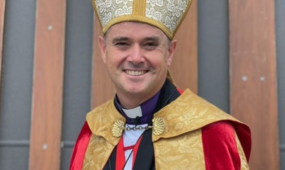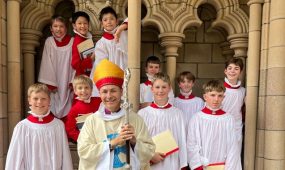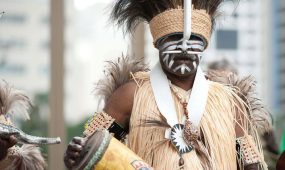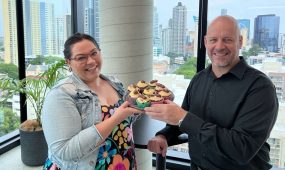Q&A with Member of the Order of Australia recipient, internationally known scientist and active Kenmore parishioner, Dr Rachel McFadyen AM
Spotlight Q&A
Meet Dr Rachel McFadyen AM and find out about her scientific work, ministry, faith journey, favourite scripture, childhood and hobbies
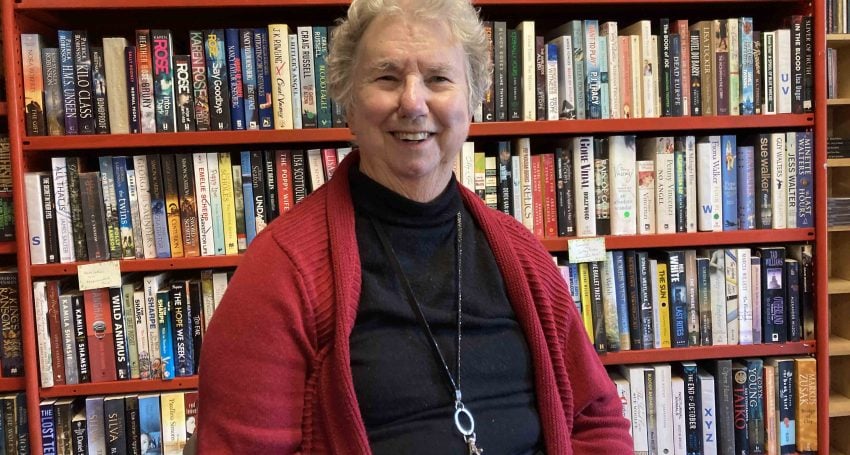
Where do you currently live and where do you worship?
I live in Fig Tree Pocket, Brisbane, and worship at Holy Spirit Anglican Church in The Parish of Kenmore-Brookfield. I also own and spend time in a house in Lamington National Park on the road to O’Reilly’s Rainforest Retreat.
How long have you been involved in the Anglican Church and in what roles?
I was christened at age five into the Scottish Episcopal Church in Edinburgh. I have been an active worshipper all my life, but first took on active “role” in the late 1970s and 1980s when I was elected to Parish Council and then served as a Liturgical Assistant and occasional preacher at Holy Spirit, Kenmore. Since then, I have taught religious education in schools and served on Parish Council, as treasurer, church warden, parish Synod representative, examining chaplain and in hospital chaplaincy. I was elected to Diocesan Council and to General Synod. From 2014 to 2017 I was a pastoral assistant at Christ Church, St George in our Western Region, where I took services, including funerals, prepared children for Confirmation, and undertook pastoral visiting.
What is your current role, and what does your role involve?
Currently I am treasurer and lay reader at Holy Spirit, Kenmore. The treasurer role includes the book-keeping and preparing monthly and annual returns for quite a large parish, so this takes up a lot of time. As lay reader, I participate in services as a liturgical assistant, and also preach and take Morning or Evening Prayer, depending on need.
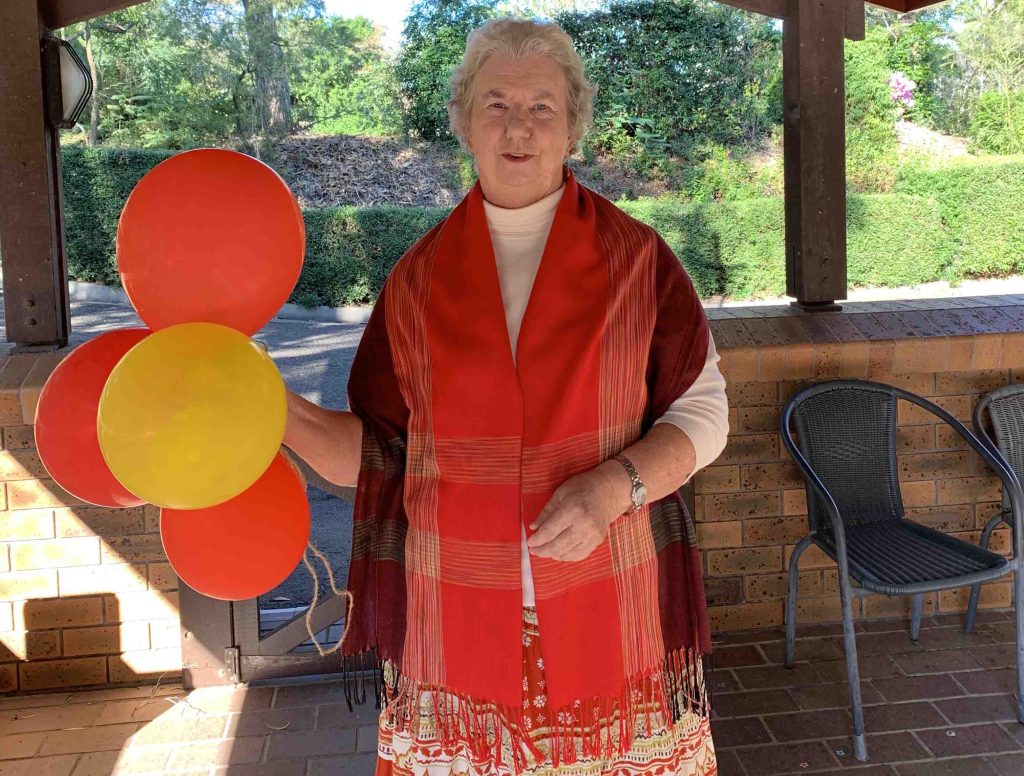
“Pentecost celebration at Holy Spirit, Kenmore, in May 2020, standing in the church lychgate area after the service. The idea was to be dressed in red, yellow and orange!” (Rachel McFadyen)
Congratulations on being appointed a Member of the Order of Australia for significant service to biosecurity, and to entomology. Can you tell us about your work in these fields?
Thank you. It is great to see Biosecurity recognised. The problem with all risk management is that if you do the work well, nothing happens! So I could show you paddocks full of all the weeds we do not have – but it lacks punch! All my life, I have worked in biological control of major weeds, bringing in insects and diseases to control them, while making sure these same insects do not damage other plants. Over the years, I have been involved in the successful control of harrisia cactus, parthenium weed, annual ragweed, and rubber vine. I was instrumental, with others, in getting the laws changed to prevent new weedy plants coming in legally – until 1984, the law only blocked importation of plants already present and weedy in Australia, but this was progressively changed to the current more sensible system, where importers have to demonstrate that the proposed import will probably not be invasive.
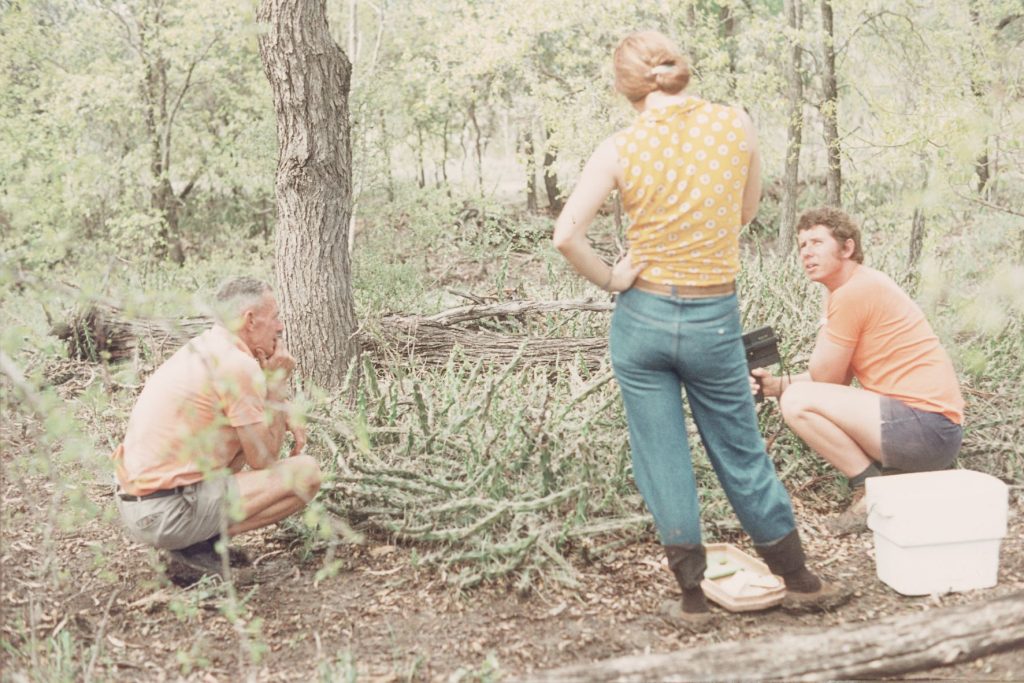
“This was taken in 1976, a few months after I arrived in Australia, and I’m standing with two Queensland Department of Lands field staff in the middle of a patch of harrisia cactus in a property south of Collinsville in North Queensland. Note the lack of protective gear in those days – no proper boots, no hats, no long sleeves!” (Rachel McFadyen)
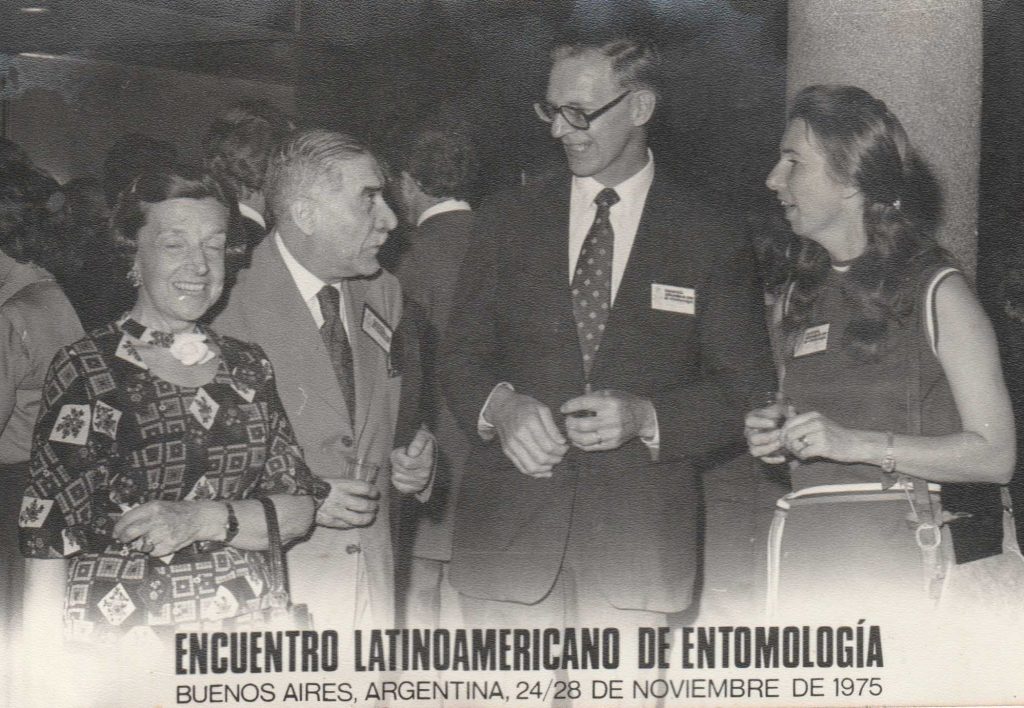
“Me at the Latin-American Entomology Conference in November 1975, with my then boss Dr FD Bennett and two eminent Argentinian entomologists. I was based in Tucuman, north-west Argentina, from May 1973 to May 1976, working on harrisia cactus insects” (Rachel McFadyen)
Your Church work and wider community service were also mentioned in the Member of the Order of Australia citation. What has been one of the highlights of your time in the Anglican Church so far?
Studying Education for Ministry (EfM) with a Kenmore Parish group led by Rod and Kay Murry in the late 1990s. It was a demanding course – two to three hours weekly for four years – committing year by year, but it was wonderful. I learnt so much about myself, about God and the Bible, and about other Christians, too.
What are your plans and goals for the next 12 months?
I will continue as parish treasurer while planning to simplify things for the next treasurer; be a loving grandmother; visit family in the UK and the West Indies if possible; and, maintain my current good health.
Can you tell us a little about your personal faith journey?
After my mother died when I was four, I was brought up in Edinburgh by my Christian grandmother, who taught me her deep faith in a loving forgiving God. For high school, my sister and I moved to live with my atheist father in Exeter, but my close friends at school were Christians and I worshipped at my local parish and was confirmed through my school. At university, I had a group of Christian friends who read the Bible and discussed faith, and services at the university church and organ recitals at King’s College Chapel were inspirational for me. When I moved to Trinidad in the West Indies for work, I worshipped at the Anglican Cathedral, but found true Christian fellowship with a group of post-Vatican II Roman Catholics. My faith was further deepened by life in north-west Argentina from 1973 to 1975, worshipping with a small house church led by an Anglican missionary family, and going on retreat to a Benedictine monastery in the hills nearby. Since 1976, various study courses including EfM and chaplaincy training have extended me in different directions, while my involvement in Diocesan Council, Anglicare and Synods has taught me of the difficulties faced by the institutional Church.
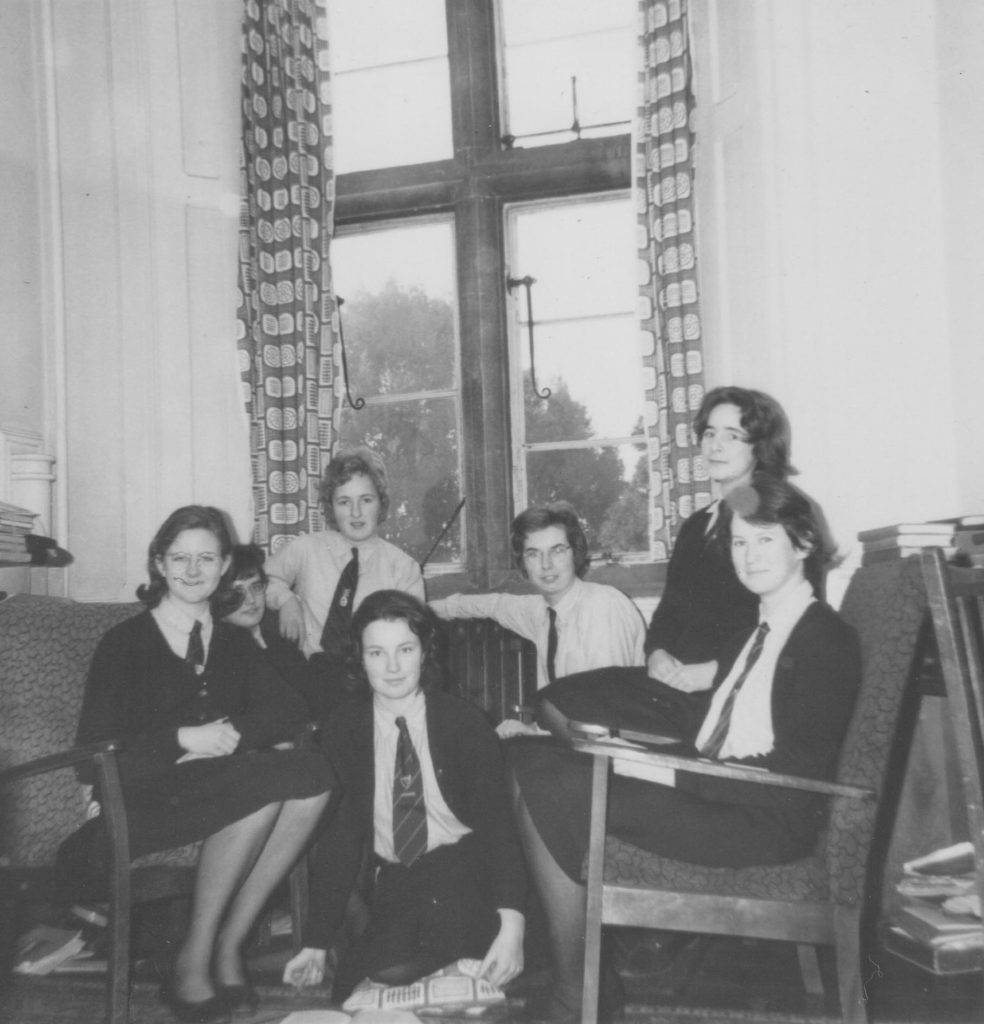
“For high school, my sister and I moved to live with my atheist father in Exeter, but my close friends at school were Christians and I worshipped at my local parish and was confirmed through my school” (Rachel McFadyen, centre back, in 1963)
How does your faith inspire you and shape your outlook, life choices and character?
Essentially, most of my life I have believed, “if God is with you, who can be against you?”, and have tried to put major life decisions into God’s hands. In my work, I believe in doing the best I can in any job I do, leaving the outcomes to God, and accepting praise or criticism as they come. This has given me great peace of mind in often difficult and sometimes life-threatening situations.
What is your favourite Bible scripture and why?
When first appointed as a manager of a science unit within the Queensland Government, I took the Micah 6 line as my guide – “Do justice, love mercy, walk humbly with your God” – especially the “Do justice” part.
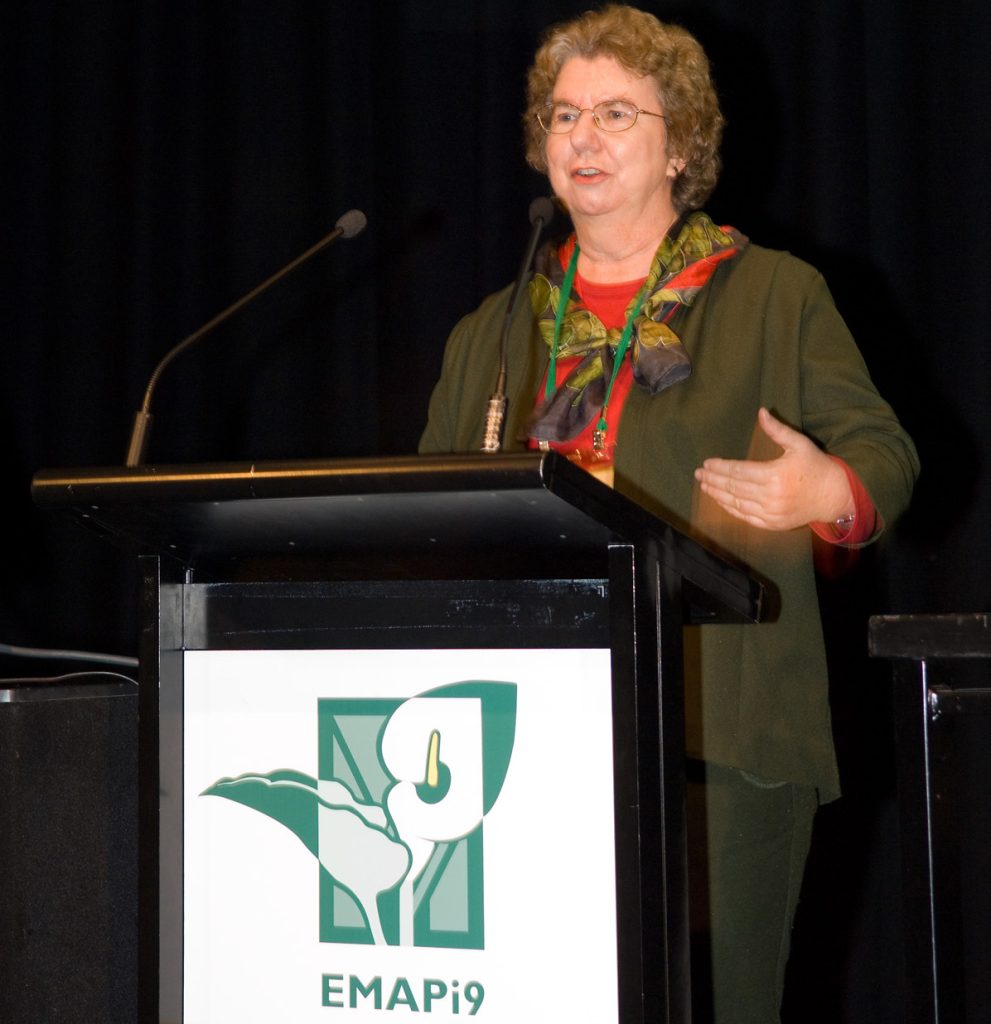
Dr Rachel McFadyen giving the key note address at the ninth International Conference on the Ecology and Management of Alien Plant Invasions, Perth Western Australia Hyatt Hotel, 2007
What person of faith inspires you the most and why?
Probably Archbishop Desmond Tutu for his courage and determination through the very difficult years, and for his joy, humour and humility even when he became famous throughout the world.
Why is it important to support the Uluru Statement From the Heart’s reforms, including the Voice to Parliament enshrined in the constitution?
Simply put, it is of major importance to the First Nations peoples, and therefore the country should accept and action this.
What is the kindest gesture you have ever received or witnessed?
Hard to say – I have received a lot of kindness in a long life! But the ones I remember are a man who went out of his way to find and take me to a hotel when, owing to train strikes, as a 21 year old I was stranded at mid-night in a small British city. And a woman who stopped for me on a lonely road in central Queensland when I had run my car off the road, waited for me in Taroom while I telephoned to make all the necessary arrangements, and then drove me to Toowoomba where she was going.
What is the best piece of advice you have ever received and who gave you this advice?
In 1989, I was considering enrolling in a Masters in Public Administration at UQ, which was a two-year course taught in evening classes. My husband and I both worked full-time and my children were nine and seven years old, and I was thinking that I should wait until they were older. Our rector at the time, Jeff Roper, advised me to do the course while they were young, saying young children are in bed in the evenings while teenagers needed their parents more. He was quite right.
What do you do in your free time to recharge and relax?
Read, garden, walk, and play solitaire and sudoku.
What book have you given away most as a gift and why?
The Screwtape Letters by CS Lewis. It is getting dated, reflecting attitudes of the day towards women, but in my opinion it still offers valuable insights into practical Christian living.
Where do you do your best thinking?
Looking out on the garden or walking in the bush or along the sea-shore.
What is your best childhood memory?
Eating fresh-caught mackerel, cooked rolled in oats, on a beach in the western Scottish highlands, where the family used to holiday.
What is your earliest memory?
I was 20 months old. The family was on the beach in Madras (now Chennai) in India, when my three-year-old brother fell down in the surf and a man rushed past me to pull him to safety. This was just before my father was demobilised and the family returned to the UK. This is my only memory of India where my brother, younger sister and I were born.
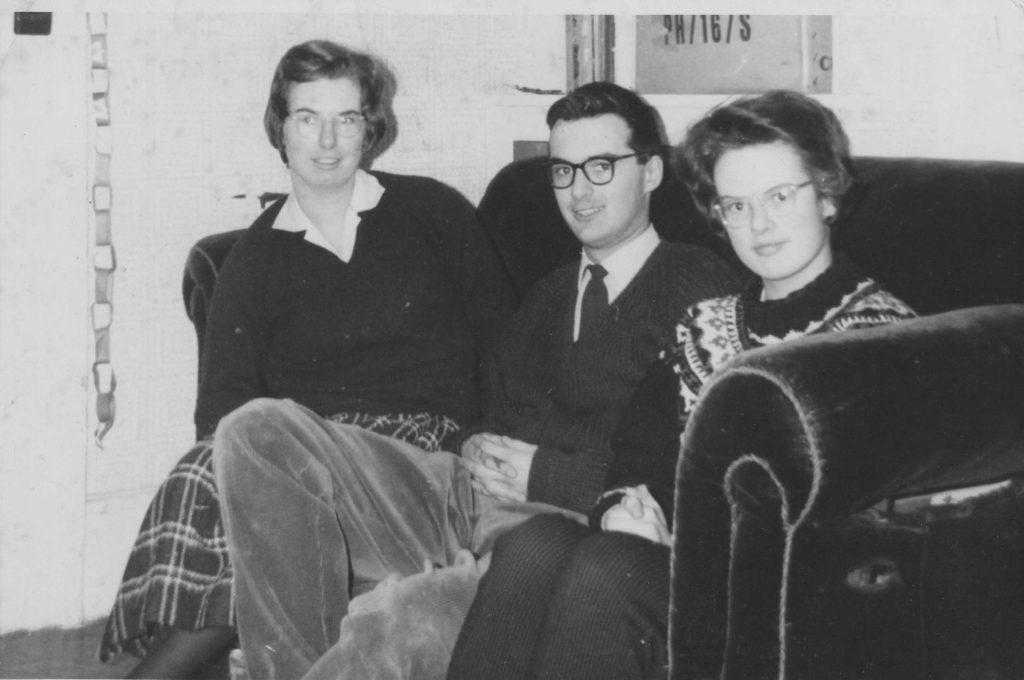
“Me in Exeter, Devon, with my elder brother Ian and my younger sister Bridget in 1963” (Rachel McFadyen)
If you are having a bad day, what do you do to cheer yourself up?
Re-read my favourite novels by Jane Austen, Mary Stewart, Dorothy Sayers, or detective stories by PD James.
What is your unanswerable question – the question you are always asking yourself?
Why does a loving God permit so much suffering, especially when I meet people whose lives and potential are cut short by major illness?

